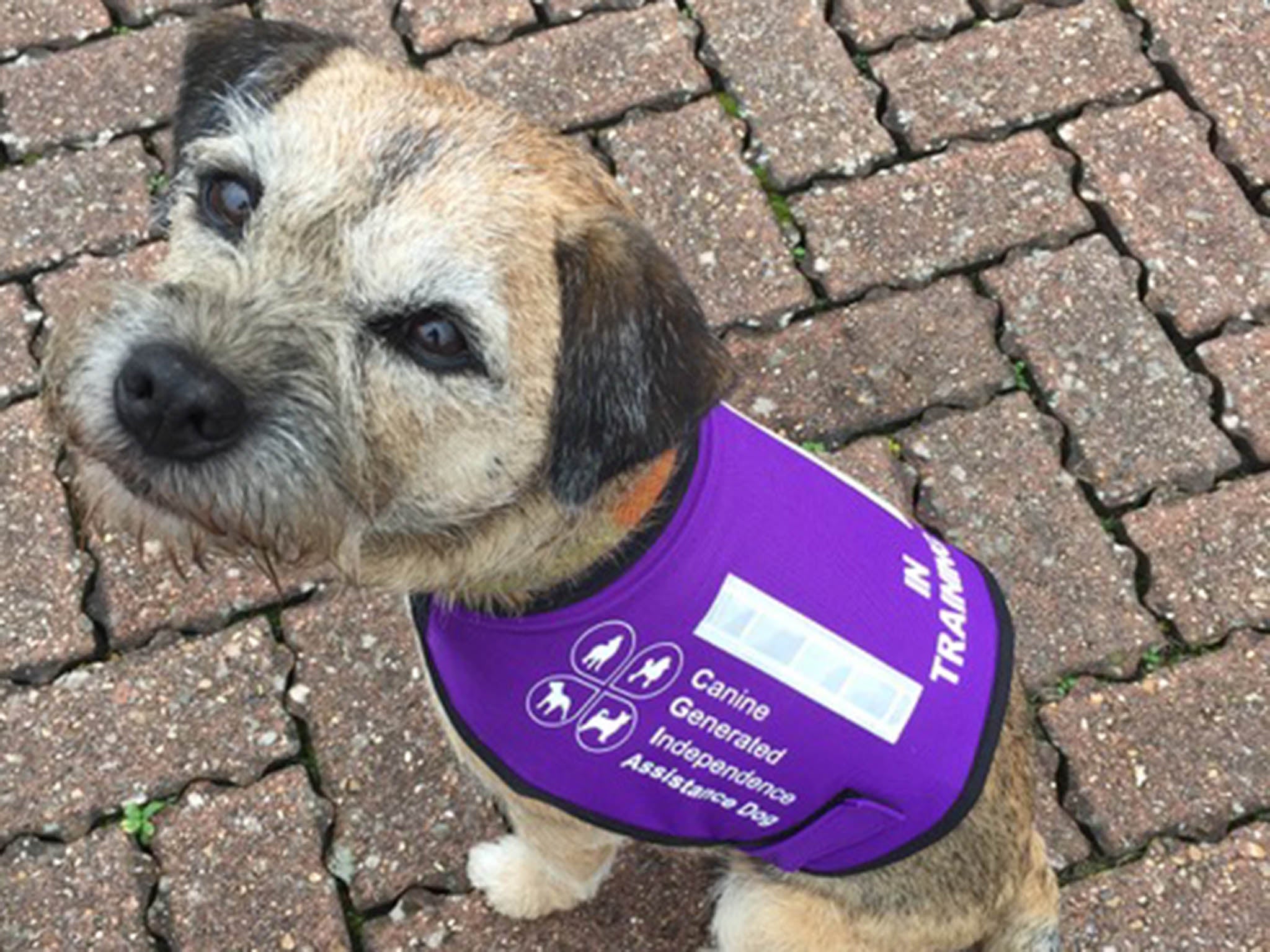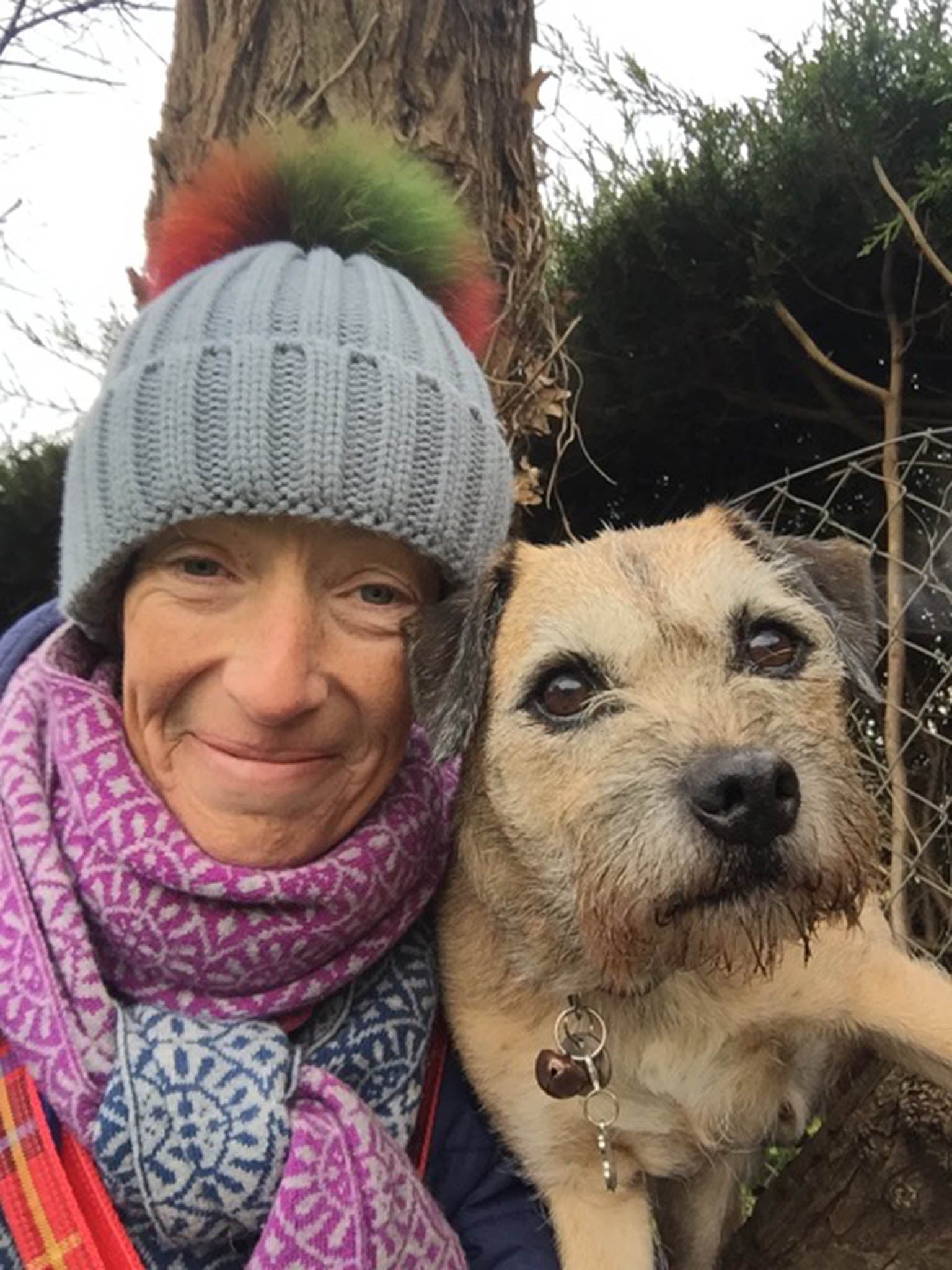How pets improve mental health issues, from depression to PTSD
Cuddle power should not be underestimated: a growing raft of studies shows that furry friends can help people experiencing a host of issues

Your support helps us to tell the story
From reproductive rights to climate change to Big Tech, The Independent is on the ground when the story is developing. Whether it's investigating the financials of Elon Musk's pro-Trump PAC or producing our latest documentary, 'The A Word', which shines a light on the American women fighting for reproductive rights, we know how important it is to parse out the facts from the messaging.
At such a critical moment in US history, we need reporters on the ground. Your donation allows us to keep sending journalists to speak to both sides of the story.
The Independent is trusted by Americans across the entire political spectrum. And unlike many other quality news outlets, we choose not to lock Americans out of our reporting and analysis with paywalls. We believe quality journalism should be available to everyone, paid for by those who can afford it.
Your support makes all the difference.The comforting padding of feet across the otherwise silent house, the welcoming nudge of wet nose on arm and the soothing sense of unconditional love can make lives tainted by mental health more bearable.
Formerly love-deprived Nell, my rescue spaniel, loves her cuddles, and she “asks” for them on a daily basis. The strength of her unconditional and innocent sense of love is palpable and we both derive comfort and a sense of calm from that closeness.
Just by stroking, sitting next to or playing with a pet can help to relax and calm someone with a mental health condition. Dogs especially will encourage their owner to seek exercise and thereby meet other dog-walkers, creating vital social connections. A growing raft of studies has shown that pets can help with numerous issues linked to mental health from depression and post-traumatic stress disorder to addictions, stress and feelings of loneliness.
Mental health campaigner Vanessa Holbrow from Burnham-on-Sea, Somerset, has been helped on a life-changing level by the power of a similar connection. Vanessa’s border terrier, Sir Jack Spratticus, a rescue from Border Terrier Welfare, won the dog hero competition, Friends for Life, at Crufts 2018. Jack, for short, is credited with changing Vanessa’s life, helping her to live with complex mental health illnesses and find a sense of self, companionship and stability.
Vanessa explains: “Jack had such a bad start in life. It took me a year to train him in order for us to be able to walk in local dog-friendly areas, for example, a seven-mile stretch of beach, on our doorstep. This just shows what love and patience can do. His needs, I strongly sensed, mirrored my own to a degree; put simply, due to inappropriate early life experiences.”
Vanessa was determined not to give up on Jack, and through long hours of patience and training, Vanessa says: “Jack now helps to raise awareness of mental health issues and he is my family. I don’t know what I would do without him.”

Jack was accepted by the organisation Canine Generated Independence in August 2017 and started training to be an official assistance dog to Vanessa. Vanessa chose to go down the route alone, so Jack is now an owner-trained “assistance dog for mental health”, independent of any organisation. Wherever they go, Jack’s status stimulates conversation, raises awareness and helps tocombat prejudice. Jack is a brilliant advocate for the crucial role dogs play for those living with mental health illnesses.
Jack has given Vanessa the motivation and passion to speak on local radio, the confidence to speak in front of the camera for local television, write articles and help organisations including Rethink, Beat and Time to Change. Together, Vanessa and Jack have raised thousands of pounds for mental health charities.
“Jack has been an integral part of maintaining my physical connections to the world,” Vanessa says. “He enables me to go out and meet with other dog-owners. Regularity in seeing people is paramount to continuing a friendship and Jack has made a significant difference with this. This has been an invaluable reminder that other people are there and that they may care about me. This is a chronically unfamiliar concept for me”.
An otherwise isolated person can become more a part of their community by the simple act of walking their dog or chatting about their pet to another person. The responsibility of looking after a pet can also give a sense of achievement and add important routine to a day.
Dr David Cliff, a personal development coach at Gedanken, says: “The presence of an animal can have a supportive and calming effect on people. Stroking pets induces a sense of wellbeing, often creating blood pressure reduction. The warmth of contact, the brisk dog walk to maintain fitness, the cat’s calming purr, all of these offer owners gifts that are hard to place a value upon, but we would be clearly more impoverished without.”
A joint Cats Protection and Mental Health Foundation study showed how cats can help improve mental health. The research involved more than 600 cat- and non-cat-owning respondents, with half of them describing themselves as currently having a mental health problem. The survey found that 87 per cent of people who owned a cat felt it had a positive impact on their wellbeing, while 76 per cent said they could cope with everyday life much better thanks to the company of their feline friends. Half of the cat owners felt that their cat’s presence and companionship was most helpful, followed by a third of respondents who described stroking a cat as a calming and helpful activity.
Dr Cliff says: “The care of an animal and the companionship it brings can bring meaning to one’s life, personal enrichment and has been known to reduce suicidal behaviour and encourage people to rework their lives.
“We live in a world of increasingly single-person households and many have described loneliness as almost a disease state in our society. Pets often offer, at least in part, an antidote to that, particularly among people who are, for example, housebound, geographically isolated, have difficulty maintaining adult relationships, have mental health problems, learning disabilities and other challenges that limit or qualify human interpersonal contact.”
From easing in the early stages of alcohol or drug rehabilitation to being a solid support for those who have entered recovery, animals have a lot to offer those struggling from addiction. Through all stages of treatment and recovery, pet therapy can be an enormous help.
Yet another canine has inspired a campaign to improve addiction recovery. Rescue dog Tottie was born in 2003 and was the last of an abandoned litter of puppies to be homed by the Dogs Trust at Roden, Shropshire. She died recently, one month short of her 15th birthday, but will always be remembered for the love and support she gave to her owner who suffered from alcohol addiction.
Tom Maybury died five years ago at the age of 29, but the recent death of Tottie has led Tom’s mother Sally and younger brother Henry to raise awareness of how rescue dogs can make such a difference to people’s lives.
Henry Maybury, Tom’s brother, says: “We visited the Dogs Trust because Tom was adamant he wanted a dog. On seeing this little one with a huge head Tom decided he wanted her, despite us trying to persuade him otherwise. Tom absolutely idolised her, she really was his little girl. She would go to work with him, riding in the tractor cabin, keeping him company.
“Sadly, after Tom had been looking after Tottie for about six years, he was unable to care for her properly because he was fighting his own demons, alcohol addiction. Tottie moved in with mum but Tom visited regularly, walking her – he really did love her to bits. When Tom moved back with mum for a spell of support, she would frequently find Tottie lying on the bed with him. Tottie played such a large part in Tom’s life and I am sure she helped him in trying to cope with his demons.”
After Tom’s death, Henry, a singer/songwriter, came across the songs “Lost Days” and “Every Night And Day” and decided they would be the ideal vehicle to make people aware of alcohol addiction and how easy it is to fall into that trap.
“After releasing the videos and travelling all around the UK visiting schools, prisons and rehabs, Tottie became a star in her own right,” added Henry. “Students would message me through Facebook and Instagram asking me how Tottie was and what she was up to. Prisoners would beg me to bring her into prisons so they could meet her – I wish it had been something I was allowed to do.
“Tottie started suffering from arthritis and dementia last year and towards Christmas we knew she had come to the end, so we all said our goodbyes to a very special lady, who is now reunited with her best friend Tom.”
Tom’s mum Sally says: “I would never have thought that after the sadness of losing my son Tom five years ago that I would now feel joy from seeing the amazing response to our addiction programme from students in schools, parents, prisoners and those fighting addiction and in recovery.”
The Maybury family is now working with Community Alcohol Partnerships (CAP), a government-funded organisation that works to tackle the problem of underage drinking and associated antisocial behaviour across the UK. Henry is donating 100 per cent of the proceeds from his debut single “Lost Days” to addiction charities globally. For further information for donations and bookings, visit henrymaybury.com.
When mental health takes a nosedive for whatever reason (if there is one to be found), pets – be they dogs, cats, horses or smaller animals – can have remarkable restorative powers. To adapt a well used and-oh-so true phrase: pets, truly are, people’s best friends.
Marie Carter is the editor and publisher of Pets Magazine, a lifestyle magazine for pet-owners. Follow Pets Magazine on Twitter: www.twitter.com/pets_mag Follow Pets Magazine on Facebook: www.facebook.com/petsmag.co.uk
Join our commenting forum
Join thought-provoking conversations, follow other Independent readers and see their replies
Comments